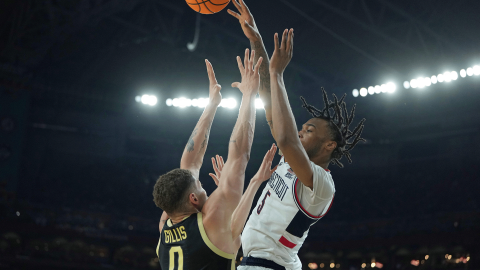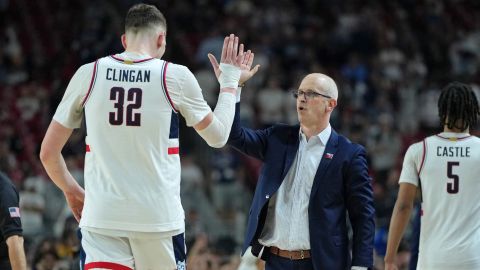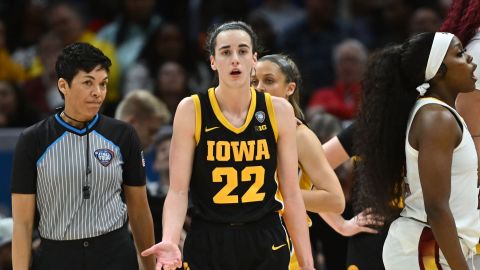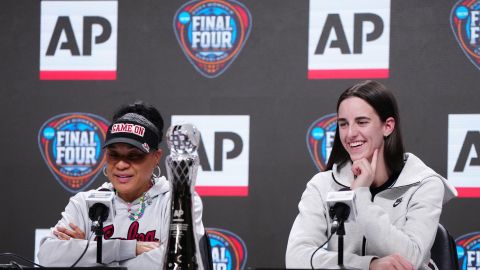 John Calipari, officially, never took UMass or Memphis to the Final Four.
John Calipari, officially, never took UMass or Memphis to the Final Four.
You might remember him doing so, but in the annals of NCAA history, no such runs by the Minutemen or Tigers occurred. As a result of violations under his watch, Calipari is the only college basketball coach to have Final Four appearances vacated at two different schools.
And a whole lot of people are just fine with that.
Comparing Calipari to the devil himself is a bit off-base, since even the devil has some worshippers outside Hades. Calipari, however, seems to be pretty much universally despised outside of Lexingston, Ky. Inside the city, one suspects he will be begrudgingly tolerated as long as he keeps the Wildcats winning.
Yet with Calipari’s third (official) Final Four appearance this weekend, here’s a different angle on Calipari: He’s the rare snake-oil salesman who tells everyone, straight up, that he’s selling snake-oil because, hey, he’s in the snake-oil business.
A lot of Calipari’s unpopularity has to do with his liberal use of so-called “one-and-done” players. This Wildcats squad is led by one, Julius Randle, arguably the outstanding player of this NCAA tournament. Two of the last four No. 1 overall NBA draft picks have come through Calipari’s program. While the rest of college basketball decries the one-and-done practice, Calipari has mastered it, not just for the good of Kentucky, but for the players themselves.
That second part is key. It’s what sets Calipari apart. Perhaps the one-and-done system is bad for the game, but in Calipari’s view, that’s not the point.
In his upcoming book, “Players First,” which was excerpted in Friday’s Wall Street Journal, Calipari writes that he’s in favor of extending the one-and-done rule by a year. Before the huzzahs of his fellow coaches die down, however, he qualifies his recommendation.
“Notice what I didn’t say: that if we changed the one-and-done rule, it would be better for college basketball,” Calipari writes. “I hear people talk like that and sometimes I want to laugh. It sounds so high-minded, but what is college basketball? Can anybody tell me? Is it something unto itself that exists on its own, with a soul and a heart that beats? Is college basketball just a spawn of the NCAA? Or when we say we care about the ‘good of the game,’ are we talking about its history?
“I don’t think it is any of these things. I want us to do right by the players. And we’re not doing that right now.”
Similarly, this week’s Sports Illustrated cover story on Kentucky contains an anecdote that will dismay traditionalists. When Calipari was recruiting Randle two years ago, he didn’t extol the virtues of a UK education or promise Randle the chance to possibly, maybe compete for a starting spot once he had earned it. He said, according to Luke Winn: “Come to Lexington for one year, chase a national championship and dress nice on NBA draft night in 2014.” He tore away the veneer, got to the heart of what Randle wanted and turned his attention to bringing Randle’s interests in line with his own.
Root against Calipari and the Wildcats this weekend, if you wish. College coaches, as a breed, tend to have some unusually unlikable qualities, and Calipari is no different. But don’t root against him because he’s selling something you believe is phony. He could have gone on promoting the farce that big-time hoops has become, shilling it as an amateur athletic wonder-drug out of the back of his Camry.
He told you, from the beginning, what the deal was. It’s not his fault anyone went ahead and bought the NCAA’s snake oil anyway.
Photo via Facebook/Kentucky Wildcats



